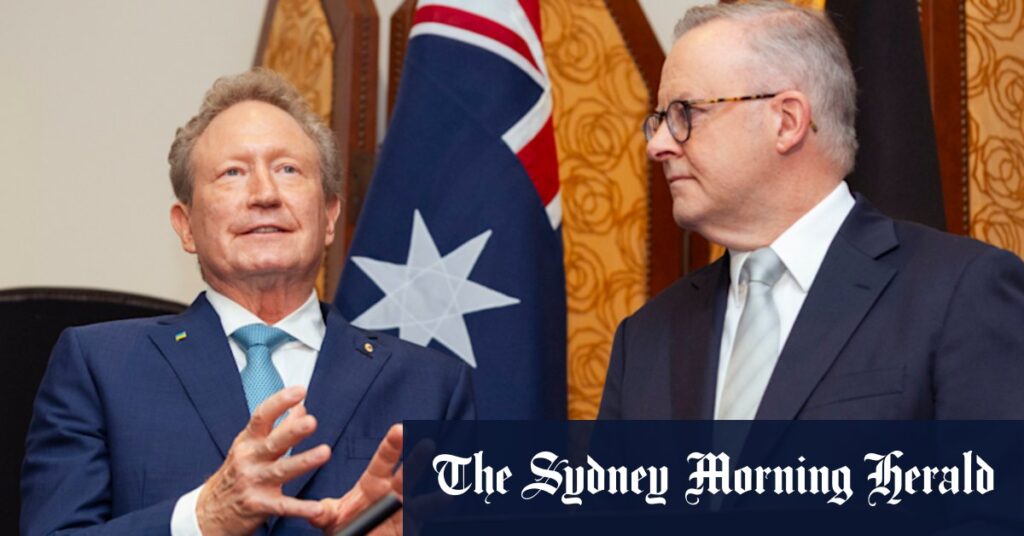
Prime Minister Anthony Albanese is encountering a significant policy challenge following his re-election, as major corporations, spearheaded by Andrew Forrest’s Fortescue, advocate for a substantial 75 percent reduction in Australia’s emissions. This push coincides with the government’s climate adviser preparing to recommend a 2035 emissions target.
The Labor government strategically postponed a decision on the interim emissions target required by the Paris Agreement during the May election, sidestepping potential conflict. However, the Climate Change Authority is anticipated to deliver crucial advice in the coming weeks, potentially compelling the government to take decisive action.
Pressure Mounts for Ambitious Climate Action
Sources close to the Climate Change Authority suggest it will recommend a reduction of 65 to 75 percent by 2035. Such a recommendation could strengthen calls for Prime Minister Albanese to leverage his parliamentary majority to enact a bold legislative target. This comes despite the United States’ recent withdrawal from the Paris Agreement, a move that has shifted global dynamics on climate policy.
The Paris Agreement, a legally binding international treaty, was signed by nearly 200 parties, including Australia. It mandates countries to set five-year targets aimed at limiting global temperature increases to below 2 degrees Celsius, with an aspirational goal of 1.5 degrees.
Historical Context and Current Challenges
Australia’s climate policy has historically been a contentious issue, with previous governments facing criticism for inadequate action. The current administration’s approach marks a potential shift towards more aggressive climate measures, reflecting growing public and corporate demand for sustainability.
Andrew Forrest, a prominent business leader, has been vocal about the need for urgent climate action. His company, Fortescue, is among the businesses urging the government to commit to more stringent targets, highlighting the economic opportunities in renewable energy and sustainable practices.
Expert Opinions and Economic Implications
Climate experts argue that ambitious targets are essential for mitigating the worst effects of climate change. Dr. Sarah Johnson, a climate scientist at the University of Sydney, emphasized the importance of setting robust goals.
“A 75 percent reduction by 2035 is not just feasible; it’s necessary to align with global efforts to curb emissions,” she stated.
Economists also point to the potential benefits of transitioning to a low-carbon economy. According to a report by the Australian Industry Group, investing in green technologies could create thousands of jobs and position Australia as a leader in the renewable energy sector.
Looking Ahead: Potential Outcomes and Next Steps
The upcoming recommendation from the Climate Change Authority could serve as a pivotal moment for the Albanese government. Should the government decide to adopt the proposed targets, it would signal a significant shift in Australia’s climate policy and potentially influence international negotiations.
Meanwhile, businesses and environmental groups are closely monitoring the government’s response. The pressure from both domestic and international fronts underscores the urgency of the climate crisis and the need for comprehensive policy action.
As Australia navigates these challenges, the decisions made in the coming months will likely have lasting impacts on the nation’s environmental and economic landscape. The world will be watching to see if Australia can rise to the occasion and lead by example in the fight against climate change.





